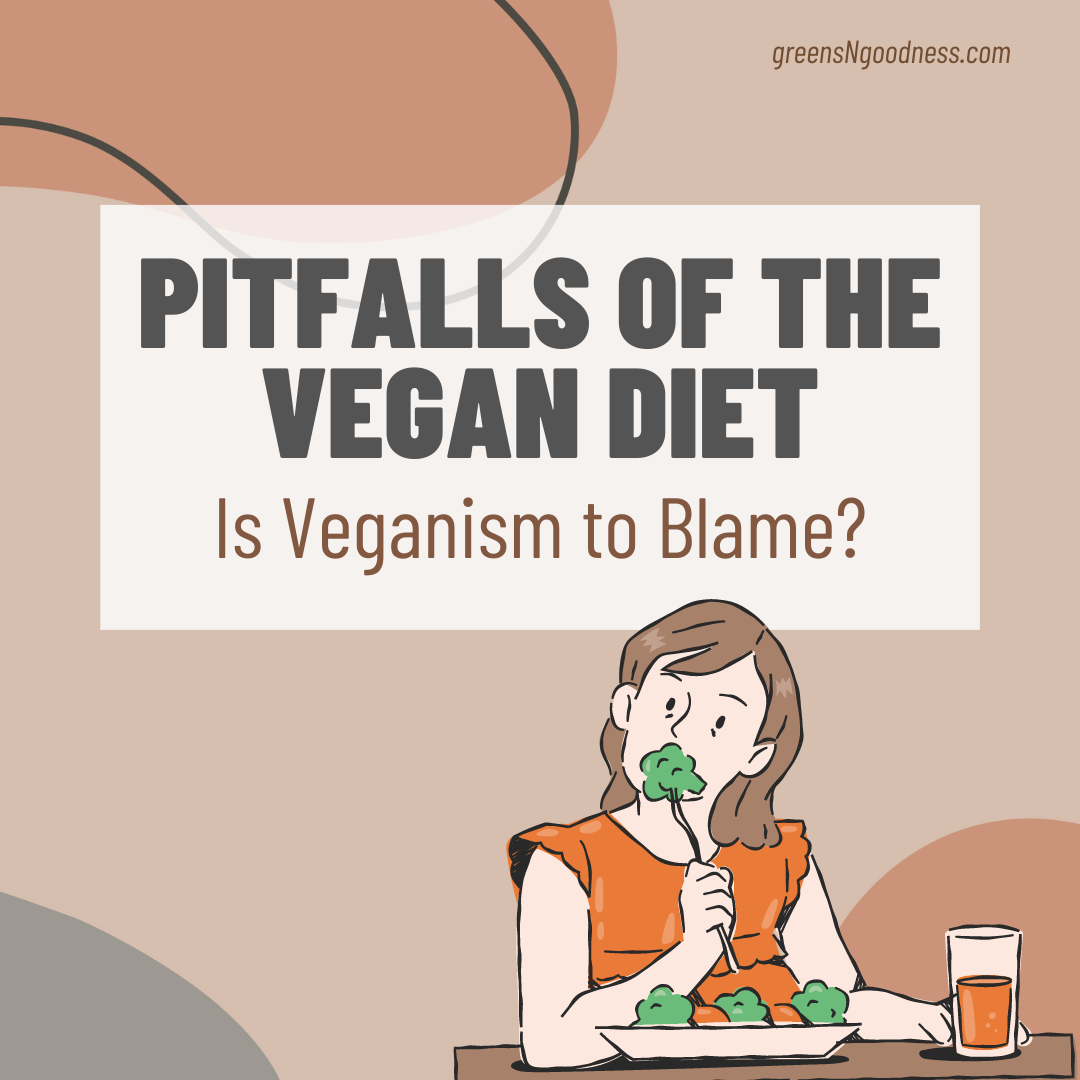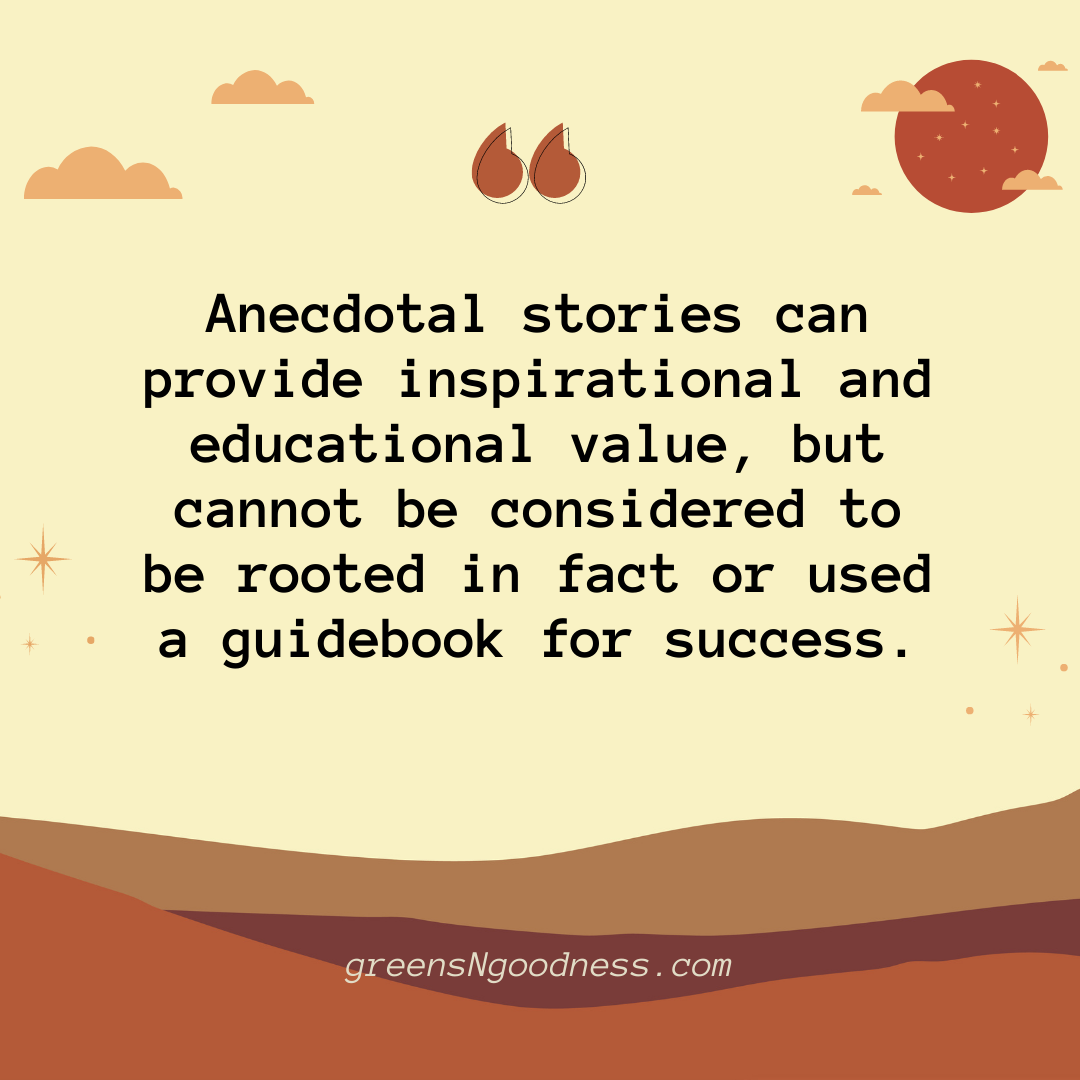The Vegan Diet: A Modern Fad or a Logical Path Forward?
At this moment in history, many of us are fortunate enough to be able to shift our focus away from mere survival, towards how to best manage our resources to sustain ourselves and the planet. It is at this crossroad of survival and sustainability that we often find ourselves facing a dietary divide; a philosophical gap between those that consume animal products and those that do not. The omnivorous vs the vegan diet.
You may have even wondered if you should go vegan for your health, the animals and the planet. Or, maybe you’ve already veered down the vegan path, but are facing obstacles, whether nutritional, social or emotional, and you are wondering if staying vegan is a sustainable lifestyle for you? Maybe the vegan diet is just too idealistic? Maybe it will leave you a nutrient deficient shell of your former self? (Spoiler alert… I’ve been vegan for over 20 years and seem no worse for the wear).
There seems to be the dietary traditionalists, convinced our historical dependence on animals is proof it needs to continue to play itself out in the modern world. This “way it’s always been” focus on history and tradition provides such a person with clarity about consuming animals Then, there is the ever-growing ethical vegan community, daring to suggest an alternative to the massive exploitation of animals that has become necessary to facilitate our “traditional” way of life.
Who’s right and who’s wrong? Maybe we’re even defining right and wrong differently in this context. Where do we draw our individual and collective lines for the treatment of animals? Do we really need to consume animals to thrive? Is a vegan diet even really sustainable? These are all questions that have come to the forefront of our collective discussion, and we are coming up with some very different answers. The chasm between these perspectives that creates the Dietary Divide is deep.
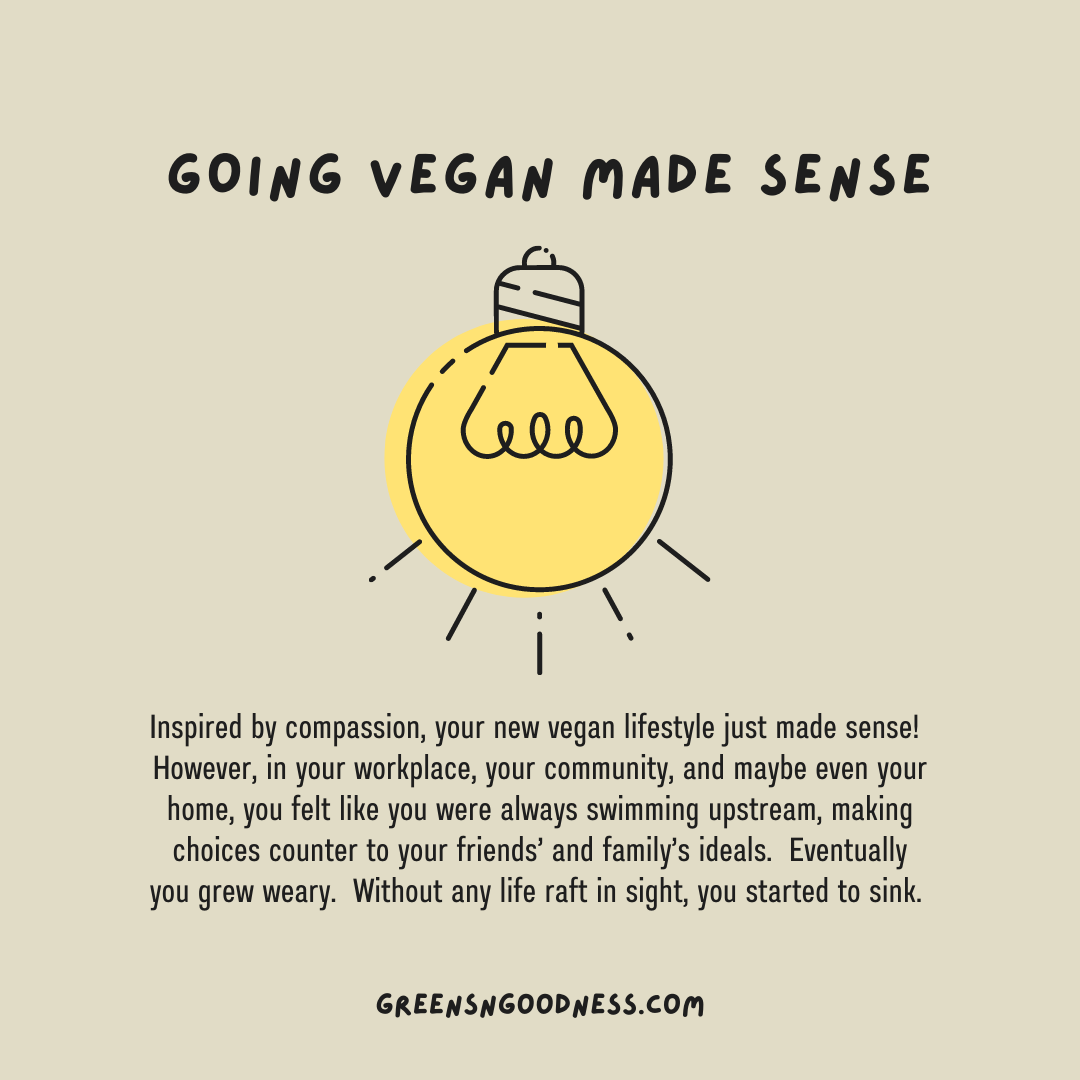
GOING VEGAN MADE SENSE
Maybe you went down the dietary rabbit hole on the Internet and came out the other end a staunch vegan, committed to making the vegan diet and lifestyle work for you! Bravo. Armed with your new understanding of the treatment of animals, a focus on compassion and information about how to meet your nutritional needs without animals, you marched forward through the surrounding culture, determined to live more consciously and with compassion!
Sometimes that culture seemed to support your new ideals, but for the most part, in your workplace, your community and maybe even your home, you felt like you were always swimming upstream, making choices counter to your friends’ and family’s, and eventually you grew weary. Without any life raft in sight, your vegan ship started to sink.
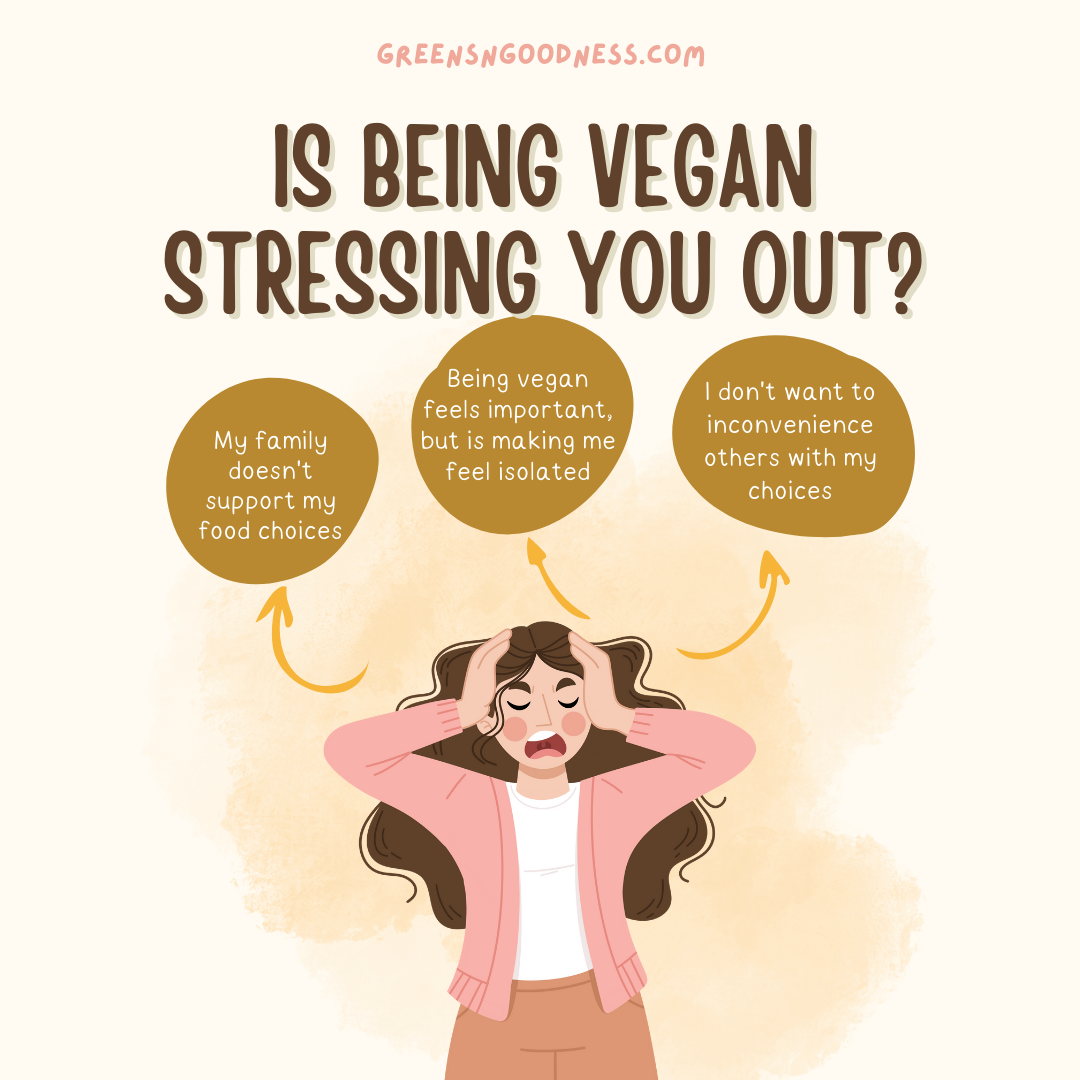
NOW YOU’RE STRESSED OUT
The challenge of navigating the nutritional obstacle course of modern life, from the vegan diet vantage point, started to stress you out. All the conflicting advice coming at you became overwhelming. Maybe you started to feel your health was suffering, which makes sense, if you’re stressed out! So, you began looking for answers in your diet and focusing more on the reasons why you shouldn’t be vegan than on the reasons you should.
And stress is no minor factor in big lifestyle shifts. The degree to which we experience and manage it can largely determine how successful any of our pursuits will be. So, it’s no wonder you may be questioning dietary philosophy, considering cultural influences, examining the emotional and social impact of food, and are starting to wonder why being vegan feels so hard for you, even with the best intentions.
THE PRACTICABILITY FACTOR OF AN ALTERNATIVE DIET
You could argue that a vegan diet could pose legitimate obstacles with regards to day to day logistics and emotional well-being in some contexts. That may be true for a small percentage of people with unique lifestyles, like those living in remote locations or individuals significantly lacking resources or autonomy. However, for most of us, the practicability factor often just equates to how much we are willing to assign value and purpose to any perceived inconvenience we may feel having to be mindful of our own choices in a world that doesn’t cater to us.
That’s not to say that going to a dinner party where you are the only vegan, going out to eat with friends where there are no vegan options, having to learn new ways to prepare your old favorite recipes, or having your friendly new neighbor bake you cookies that aren’t vegan won’t provide some practical and emotional challenges. However, your willingness to see those challenges as an opportunity for growth will determine whether there is a sense of purpose to your vegan experience, or if it is simply a series of deprivational episodes, leading you to the eventual conclusion that the vegan diet isn’t practical for you and might not be sustainable long-term.
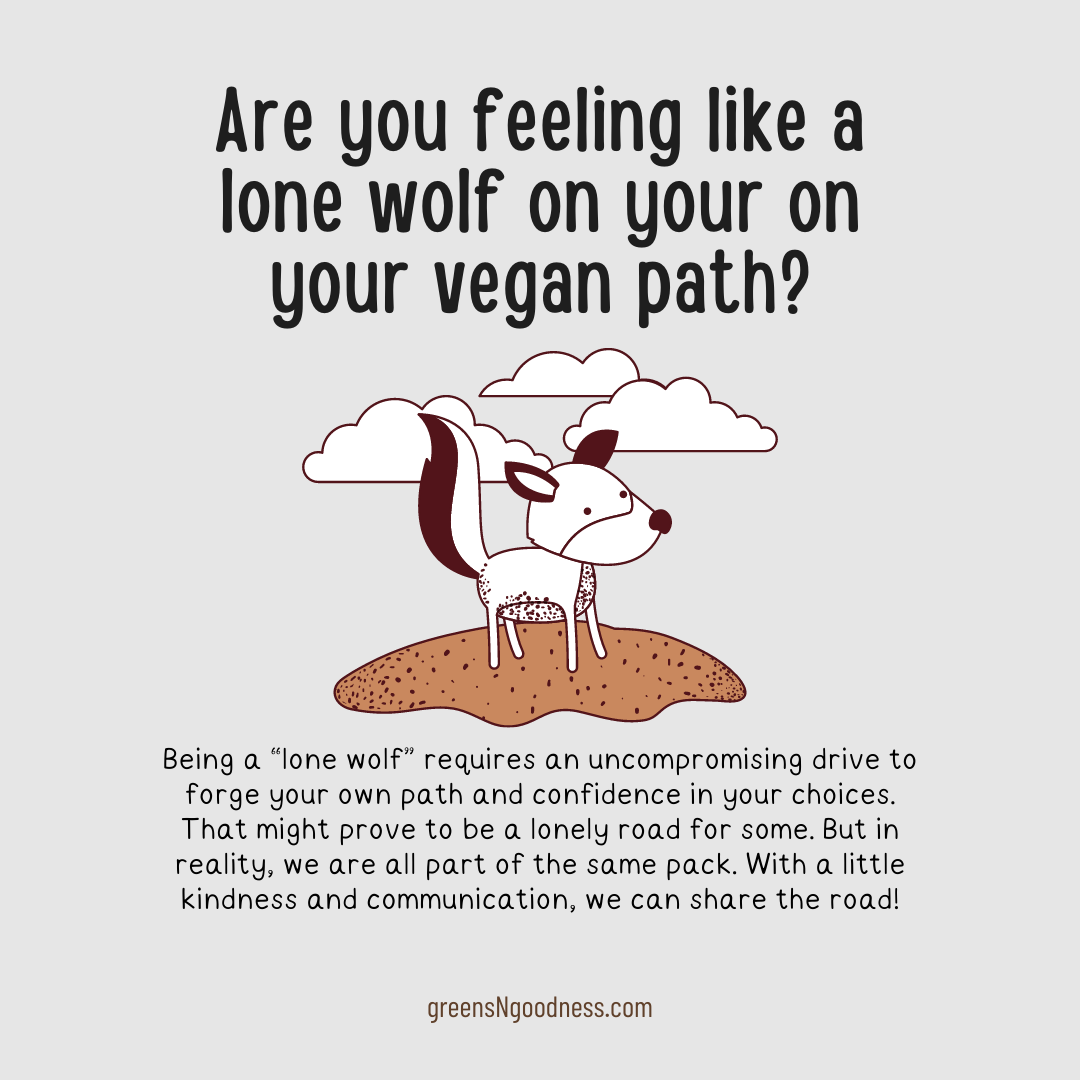
PACK MENTALITY
It doesn’t take long for those seeds of doubt to be abundantly watered by both the people in your life who are not vegan-friendly and by the marketing engines, designed to maintain status quo on the dietary front. Before you know it, you’ve pushed your ideals and ethics aside, content to slip back into the mainstream, if for nothing else but for the comfort and security of running with the pack.
Being a “lone wolf” requires an uncompromising drive to forge your own path and confidence in your choices, regardless of whether anyone joins you along the way. That might prove to be a lonely road for some, leaving them at the dietary crossroads. But in reality, we are all part of the same pack, and what we eat doesn’t separate us as much as how we think about what we eat! With a little kindness and communication, we can share the road!
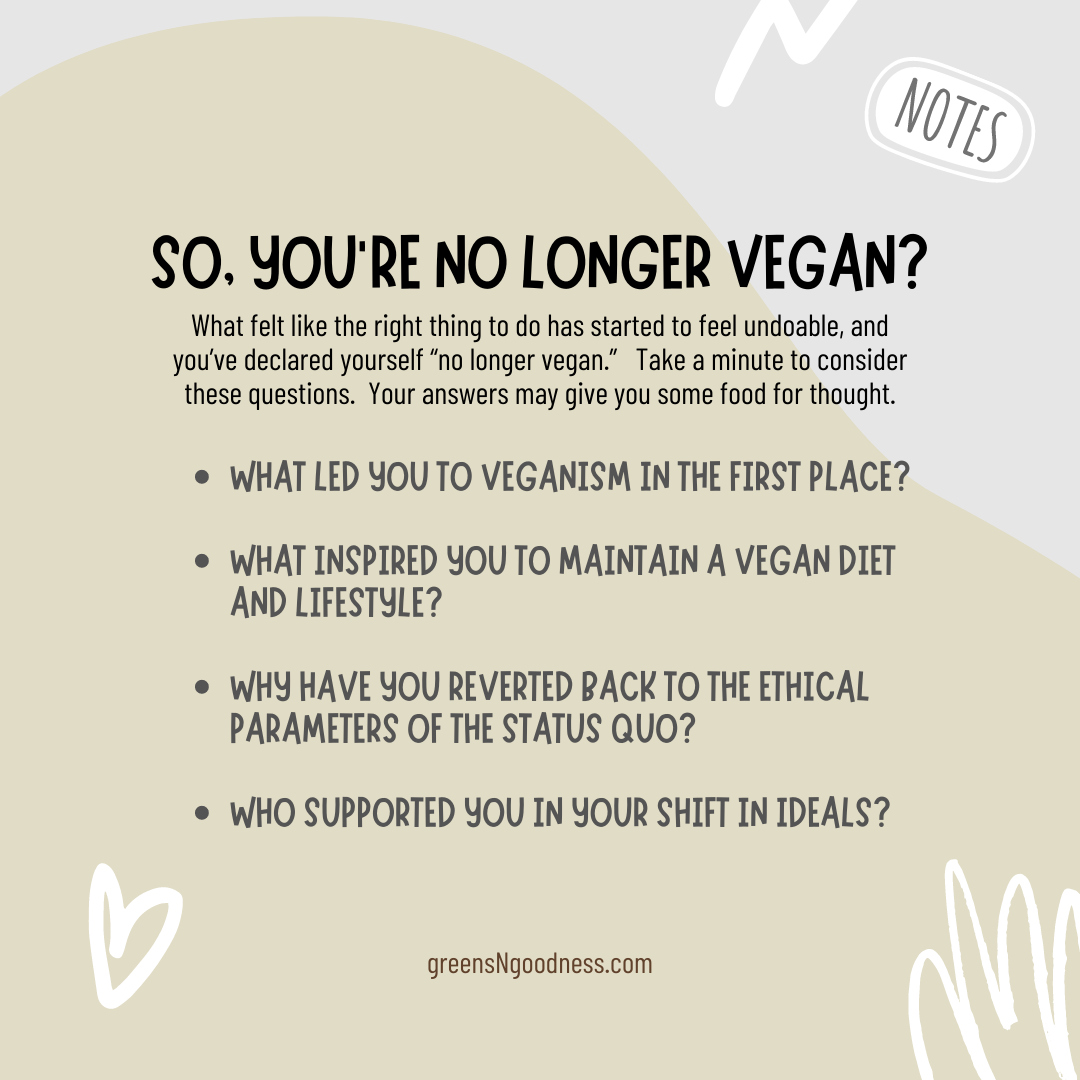
SO, YOU’RE NO LONGER VEGAN?
So, what felt like the right thing to do has started to feel undoable, and you’ve declared yourself “no longer vegan.” Let’s ask a few questions. What led you to veganism in the first place? What inspired you to maintain a vegan diet and lifestyle? And, why have you reverted back to the ethical parameters of the status quo? Your answers to these questions likely characterize your experience of veganism. So, let’s explore them a bit more.
What led you to veganism in the first place?
Were you inspired to go vegan because you educated yourself on the current agricultural systems and were faced with the reality that your consumer habits were contributing to pain and suffering? Or did you decide to try a run at the “vegan diet,” to improve your own health? Or both? Your motives to go vegan will very much influence your fortitude to “stay the course” for ethical reasons.
What inspired you to stay vegan?
If you stayed vegan for a long time, the images of suffering and your knowledge of animal agriculture probably compelled you forward, despite lifestyle challenges and social pressures. During this time, did you build a supportive community of others who aligned with your values or did you feel like you were always the odd (wo)man out? Were there economic or family factors influencing your food decisions or making a vegan diet more challenging? Did this sense of dietary isolation influence your decision to ditch the vegan diet and meld back into the mainstream?
Why have you reverted back to the ethical ideals of your surrounding culture?
If you have declared yourself “no longer vegan,” then what was the turning point at which you decided the ethics of veganism were no longer feasible for your life? How did that feel? Who supported you in that decision and what are their ideals? How will you integrate your understanding of the ethics of veganism and our current agricultural systems moving forward, while consuming animals?
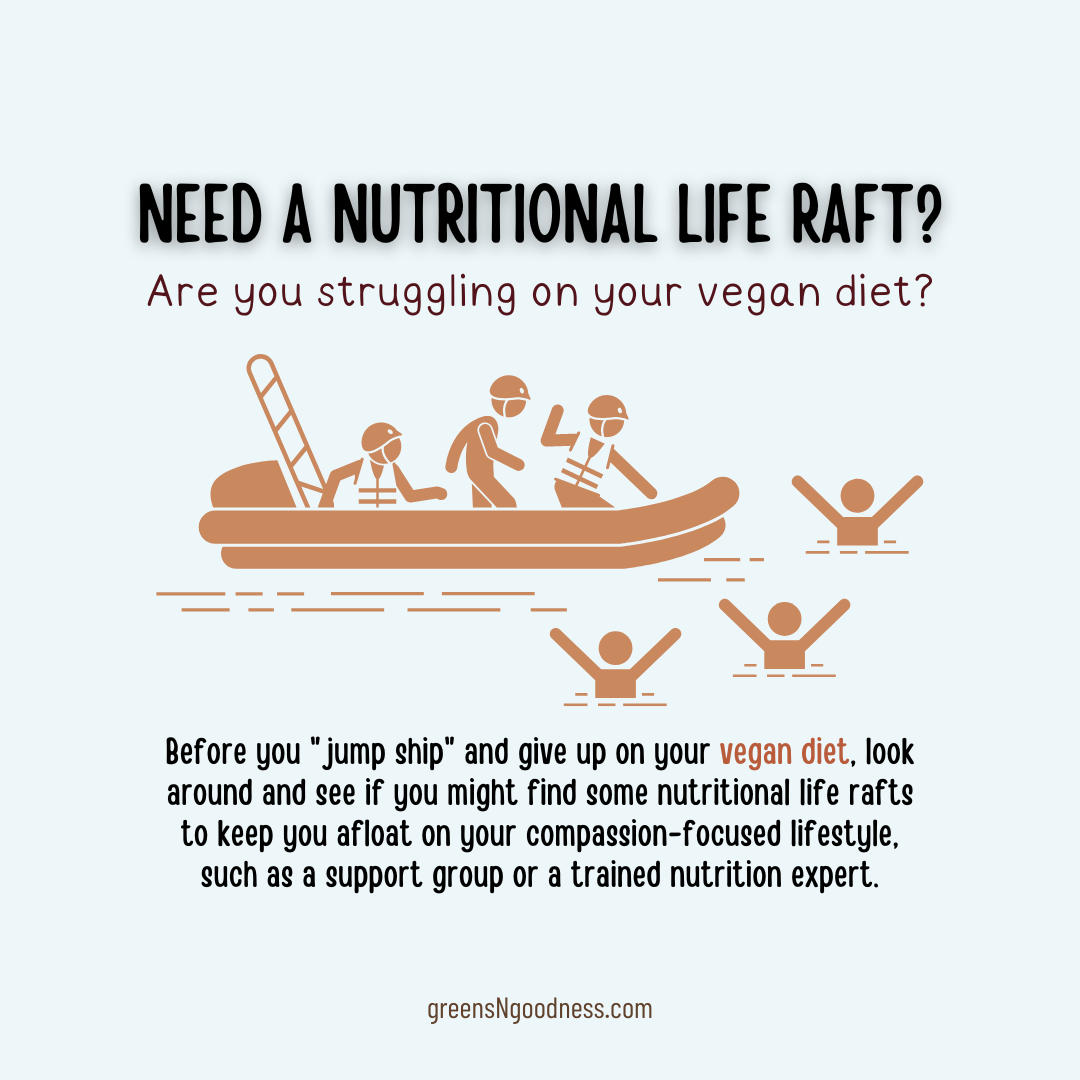
A NUTRITIONAL LIFE RAFT
You will find no shortage of these “why I’m no longer vegan” testimonies, espousing the benefits of their new way of eating, usually abundant with animal products. Of course, whenever we do something in life that seemingly makes us feel better, our instinct is to share it with others.
But, a pause might be prudent when jumping the vegan ship, to look around and see if you might find some nutritional life rafts to keep you afloat on your compassion-focused lifestyle, such as a support group or a knowledgeable nutrition expert. Where there is a desire to maintain a vegan diet and lifestyle, there is almost certainly a way to do so (in the context of the Western World, anyway) with intention, support and perseverance, and without sacrificing personal well-being.
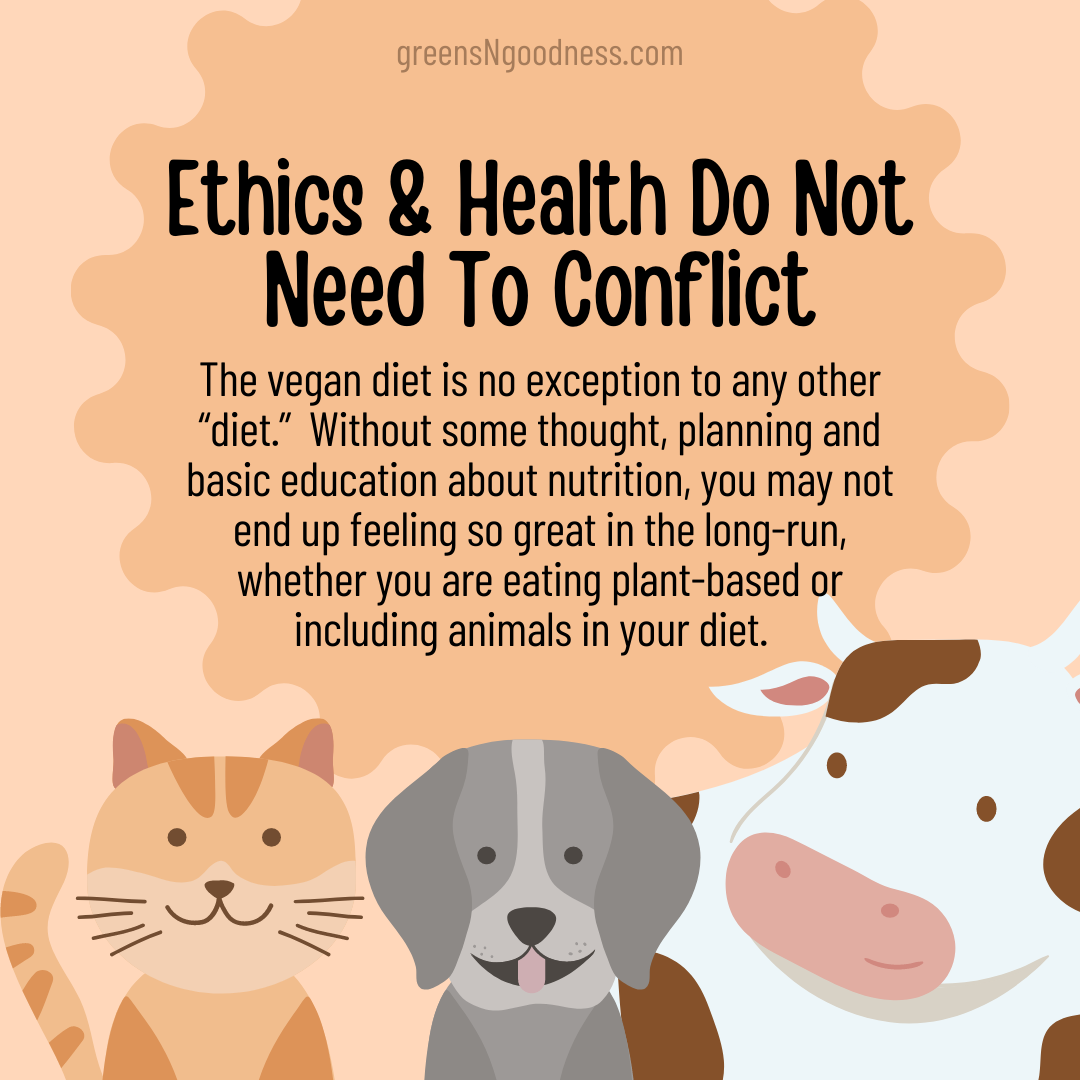
ETHICS & HEALTH DO NOT NEED TO CONFLICT
It can be so frustrating for a long-term vegan to hear someone blame their health problems on a vegan diet. Veganism is an ethical choice, not a diet plan. If you are eating a plant-based diet for health reasons, then your experience with your dietary choices is not veganism’s fault.
The vegan diet is no exception to any other “diet.” Without some thought, planning and basic education about nutrition, you may not end up feeling so great in the long-run, whether you’re eating plant-based or including animal products in your diet.
Nonetheless, it is totally possible to be vegan and be healthy. If you’ve just jumped on the vegan train and are finding that you’re not feeling awesome, or even if you are a long-term vegan, experiencing new health concerns, seek out some guidance from a nutrition expert (and a doctor if a diagnosis is needed). With a little help and objectivity about your eating habits, you’ll likely find it is not so much veganism, but your food choices and/or lifestyle that could be bringing you down.
Whether it’s food choices, lack of focus on whole foods nutrition, or even social or emotional issues surrounding food, the reason you’re experiencing a shift in your health is likely not solely because you have a deficit of animal foods in your daily routine. Try exploring alternative causes from a holistic perspective of health and wellness.
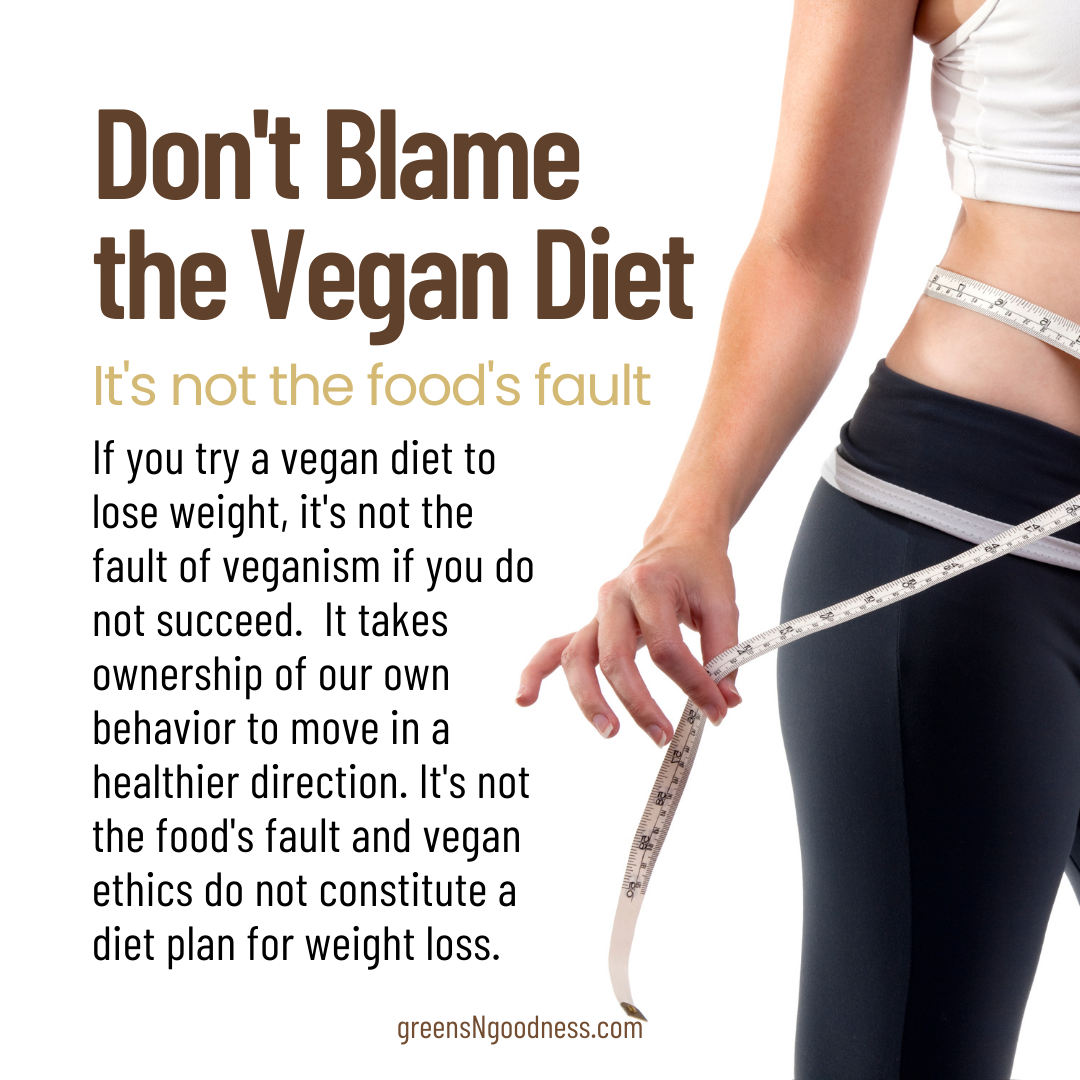
CASE IN POINT: THE VEGAN DIET BLAME GAME
A while ago, the Internet was apparently all abuzz with a Joe Rogan interview with Rick Rubin, who, more or less, shared his “veganism made me unhealthy” story. I admit, I didn’t even know who Rick Rubin was, but a quick Google search revealed he is a successful music executive and producer, linked to many of the songs we consider cultural staples.
Thus, assuming this creative, business savvy man might have some tidbits of wisdom to share, I checked out the interview. Rubin claims he weighed in at over 300 pounds after two decades of sitting on the couch listening to music, both as a passion and a profession. During this period in his life that culminated in poor health, he says he ate an exclusively vegan diet, for ethical reasons, and that after moving towards an animal-rich diet, he finally managed to “get healthier.”
Having tackled a significant weight loss and patterns of disordered eating myself, I have compassion for the challenges he faced. However, after claiming that ditching his vegan diet improved his health, he goes on to say that to remedy the weight issue, he originally had a trainer live with him for two years, watching everything he ate. It was at this point he supposedly started to include fish and eggs in his diet, and he still didn’t lose weight. This definitely doesn’t support his claim that the vegan diet, or lack of animal products, was the pivotal problem with his health. But, I continued to listen, maintaining an open mind.
Nonetheless, after entertaining his complete story, I feel his health shifts involve many behavioral, social and nutritional layers, all of which are anecdotal and specific to him, not the fault of veganism. Veganism is a dietary philosophy aimed at reducing suffering, and a vegan diet can’t perform miracles in the absence of other health-promoting behaviors.
So, ruling out him being a physiological anomaly, unable to maintain a healthy weight with simple calorie and nutrient monitoring, and moderate exercise, I would suspect that there was a strong emotional component, or some degree of food addiction going on. This could have resulted in consuming excess calories, probably from unhealthy sources, out of sight of his trainer. The reason he likely began to feel better was because of his eventual focus on whole foods nutrition, exercise, a determination to change, and tackling the issues that caused him to overeat, not simply because he was no longer adhering to a vegan diet.
STORIES ARE NOT FACT OR A GUIDEBOOK TO SUCCESS
If we are going to speak in anecdotes, which are essentially just stories about real (perceived) experience, what about me? Whereas many people claim they have encountered all sorts of health pitfalls eating exclusively plant foods, I eventually LOST 120 pounds switching to a vegan diet and lifestyle over 20 years ago, and have maintained relatively balanced health since. My story is true to me, but should we base all of mankind’s’ dietary recommendations on a few feel good stories?
Was a vegan diet the foundation of my weight loss success? Yes and no. The ethics behind my dietary choices were a compelling force that inspired me to learn more about nutrition, be more mindful with my consumer choices, and care more about myself, animals and the planet.
However, cutting out the real crap, like heavily processed junk foods, and substituting in more whole foods, definitely changed my palette and broke some of my addictive patterns with food. Still, a vegan diet was not the only way this could have occurred. I could have seen the same weight loss benefits with conscious consumption on a whole foods omnivorous diet, as well.
Even with my weight loss success on a “vegan diet,” I do not go around blaming the Standard American Diet for why I was overweight for so long. There is nuance to the story. Many of my contemporaries navigated young adulthood in the American dietary landscape and managed to stay relatively fit and balanced. I obviously had some other issues going on, besides just the food. It took a lot of introspection and ownership of my behavior to move myself in a healthier direction. It wasn’t the food’s fault.
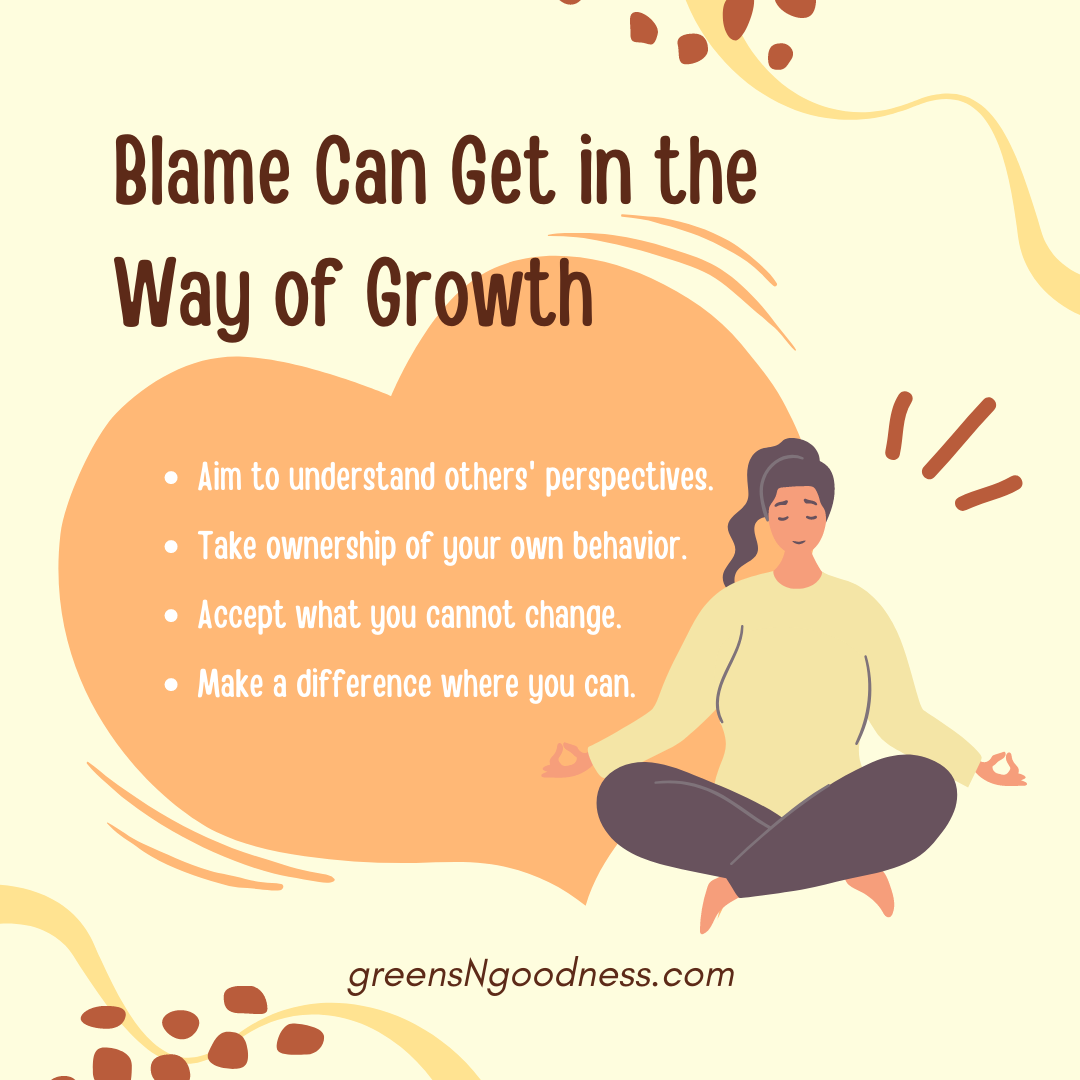
BLAME IS COUNTERPRODUCTIVE TO GROWTH
Aside from possibly being misguided, blaming a vegan diet, or any dietary philosophy, for all your health woes closes the door to possibility, especially if that philosophy’s sole aim is to minimize suffering in the world. And, that is, after all, the primary focus of veganism; to reduce suffering.
Additionally, pointing a finger at a group’s ethical stance makes it harder to communicate with others that do not share your views and makes it more difficult to work together towards sustainable alternatives. Not to mention, defaulting to blaming someone or something can make us less compassionate towards, or connected to, the object of our blame, all the while shifting responsibility away from our own actions.
This is not to discount the real economic and social barriers many people face with the task of simply being able to afford enough food for themselves or their family, making a vegan diet seem less accessible. But, for the many of us that have the luxury of choice, even on a budget, choosing the most compassionate option seems to be the least we can do.
Still, there is no need for blaming veganism, or a vegan diet, for the plethora of deficiencies claimed by those that have abandoned its principles. We have to be accountable for our actions and recognize that there are some non-negotiables in the pursuit of balanced health, the quality of our food being only one factor. Where we can make a difference, it is admirable to try. But, of course, those efforts will look different for everyone, and bickering about dietary philosophy doesn’t help us, the animals or the planet.
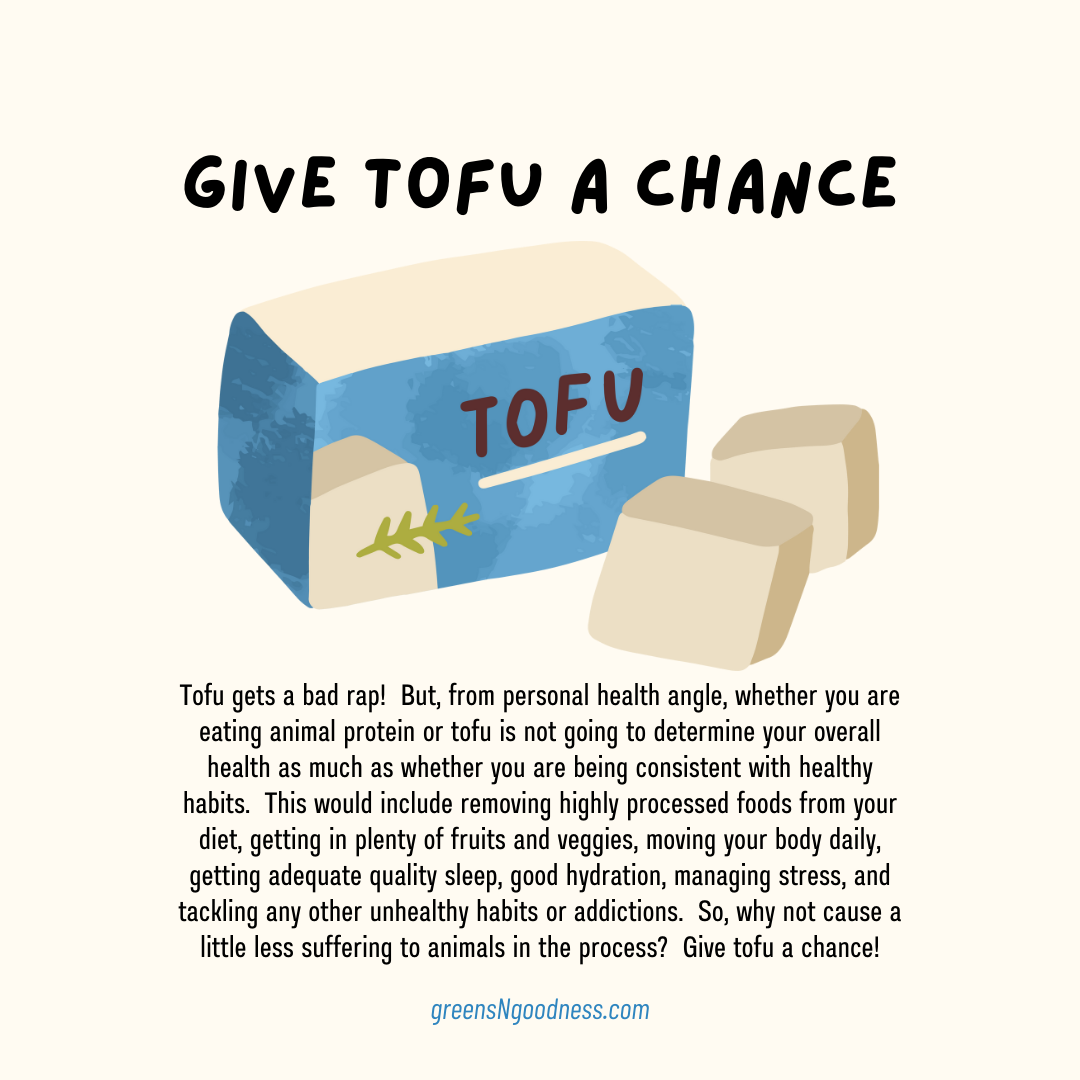
GIVE TOFU A CHANCE
And, for those that simply have ideological obstacles to veganism, based on cultural norms, religious beliefs or just the objectionable task of “being different,” there is not much to be said on this front. Veganism will always be here, if you decide to come around. Most importantly, do not let nutritional misinformation be a roadblock to reducing or eliminating animal products in your life and using a vegan diet as a guidepost. And for those that want to make it work, as long as you have access to a variety of vegan foods, and aim towards a balanced diet, you will be fine. Give tofu a chance!
I have raised three kids on a vegan diet and have coached people looking to find balance with their health. I can tell you, tofu is not the culprit, nor is a lack of chicken breasts. Food abundance and human emotion are a fiery mix. Many of us trip up trying to navigate our environment of excess and there is no shame in that. Though, we have to try not to get trapped in the “Dietary Divide,” being dogmatic about nutritional protocols that often have no basis in science, and create friction between people surrounding one of life’s most basic needs; eating.
Tofu gets a bad rap! Minimally processed, “clean,” nutrient-dense whole foods and movement are the baseline for good health. From a personal health angle, whether you are eating animal protein or tofu is not going to determine your overall health as much as whether you are being consistent with healthy habits. This would include removing highly processed foods from your diet, getting in plenty of fruits and veggies, moving your body daily, getting adequate quality sleep, good hydration, managing stress, and tackling any other unhealthy habits or addictions you have not addressed. So, why not cause a little less suffering to animals in the process? A vegan diet can actually be very enjoyable, believe it or not.
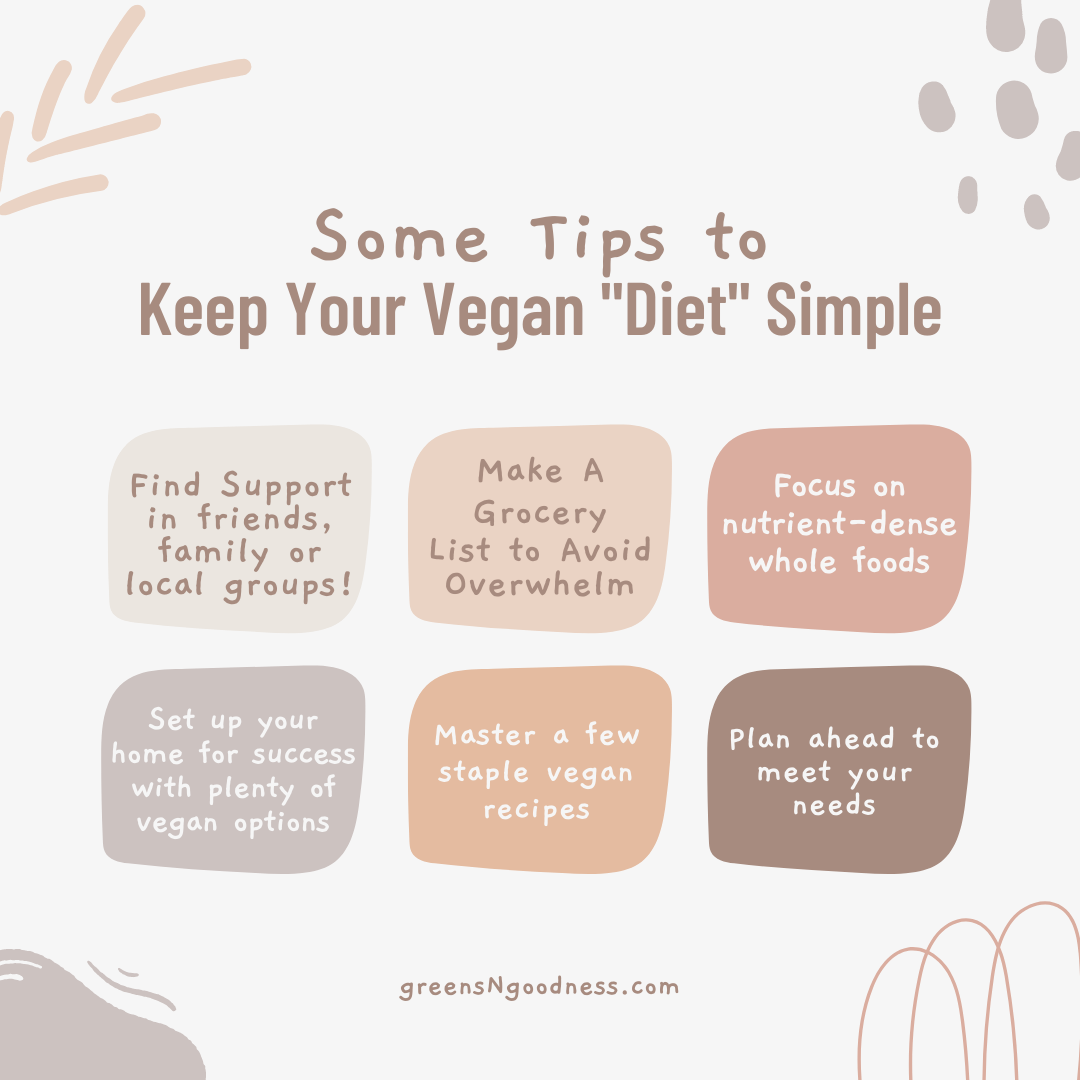
EATING IS NOT THAT COMPLICATED
That’s pretty much it. An active adult, with athletic goals is going to have different results eating anything, as someone with a sedentary lifestyle eating the same things. There are scientific parameters of human nature that none of us can escape. A vegan diet, or any diet for that matter, isn’t going to change that.
While our caloric needs will differ slightly, depending on our age, level of activity and lifestyle, we all need to take in enough calories to maintain a healthy weight, and enough nutrients to sustain bodily functions in the long-run, without running into deficiencies. Most of us in the modern world, with access to plentiful food resources, can make educated decisions about what we consume, get most of our nutrients from food and supplement when needed.
While there is no one size fits all diet, someone inspired to be vegan for ethical reasons can absolutely be perfectly healthy without exploiting animals, while also being mindful of other lifestyle factors that influence health. A vegan diet is a tool for reducing suffering in the world, not the answer to all of humanity’s problems. So, use that tool where it benefits you the most.
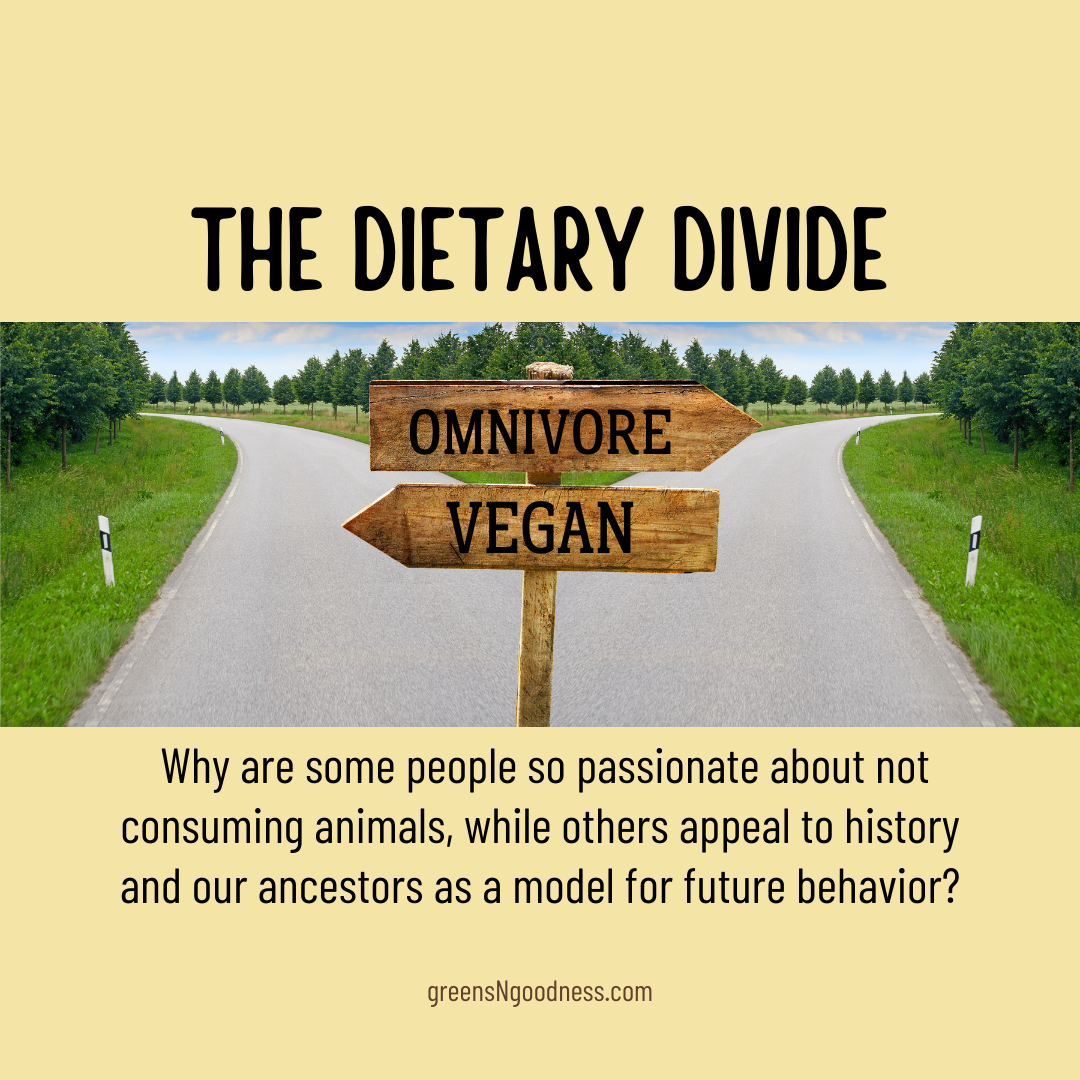
THE DIETARY DIVIDE
So, why do we feel compelled to put so much weight (pun intended) on a single dietary model? Why are some people so passionate about not consuming animals, while others appeal to history and our ancestors with the “it’s what humans have always done” argument?
Because change is hard. We cling to tradition. We thrive in community. We find comfort in old patterns and routines and we default to what everyone else is doing. Not everyone will find purpose or value in choosing to be vegan. It is the path of most resistance. It only becomes easier when reducing suffering becomes the focus and if feels there is just no other way to be.
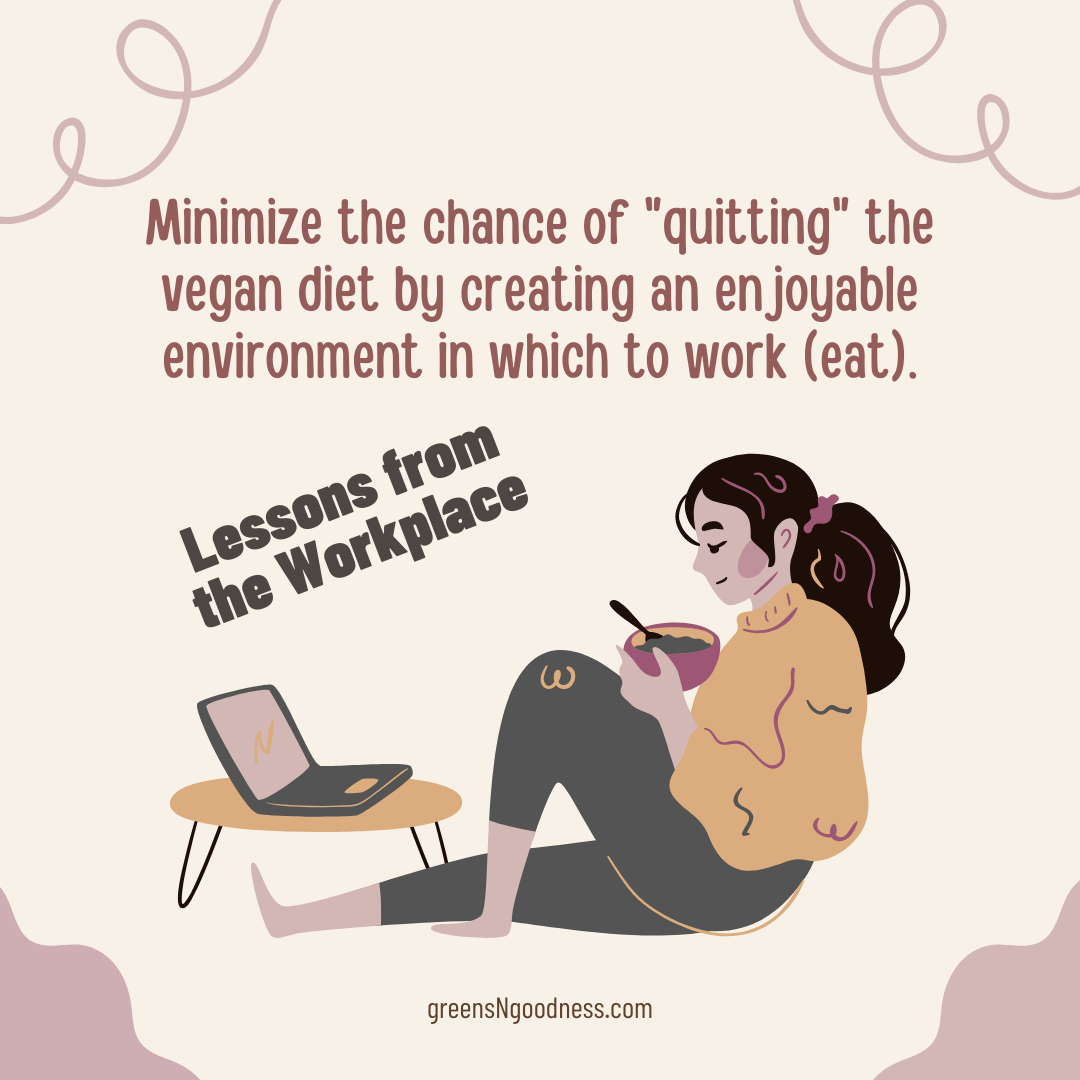
ATTRITION: A LESSON FROM WORKPLACE DISSATISFACTION
Attrition in the workplace is a real concern. Businesses don’t like to lose valuable employees. Often, the workplace has factors that could easily be remedied to make the job less unpleasant and improve the work environment for employees, such as communication, training and support. The same goes for the vegan diet. How you choose to manage your approach to food, the people with whom you surround yourself, and the resources in which you immerse yourself will largely determine your success and enjoyment of your lifestyle.
And, if you find yourself arriving at the staunch opinion that a vegan diet most certainly caused all your current health problems, ask yourself why you went vegan to start with and how you can take care of yourself without abandoning your ideals.
At the very least, recognize the benefits in bringing awareness to our collective treatment of animals and support those that have the fortitude and resources to push for change.
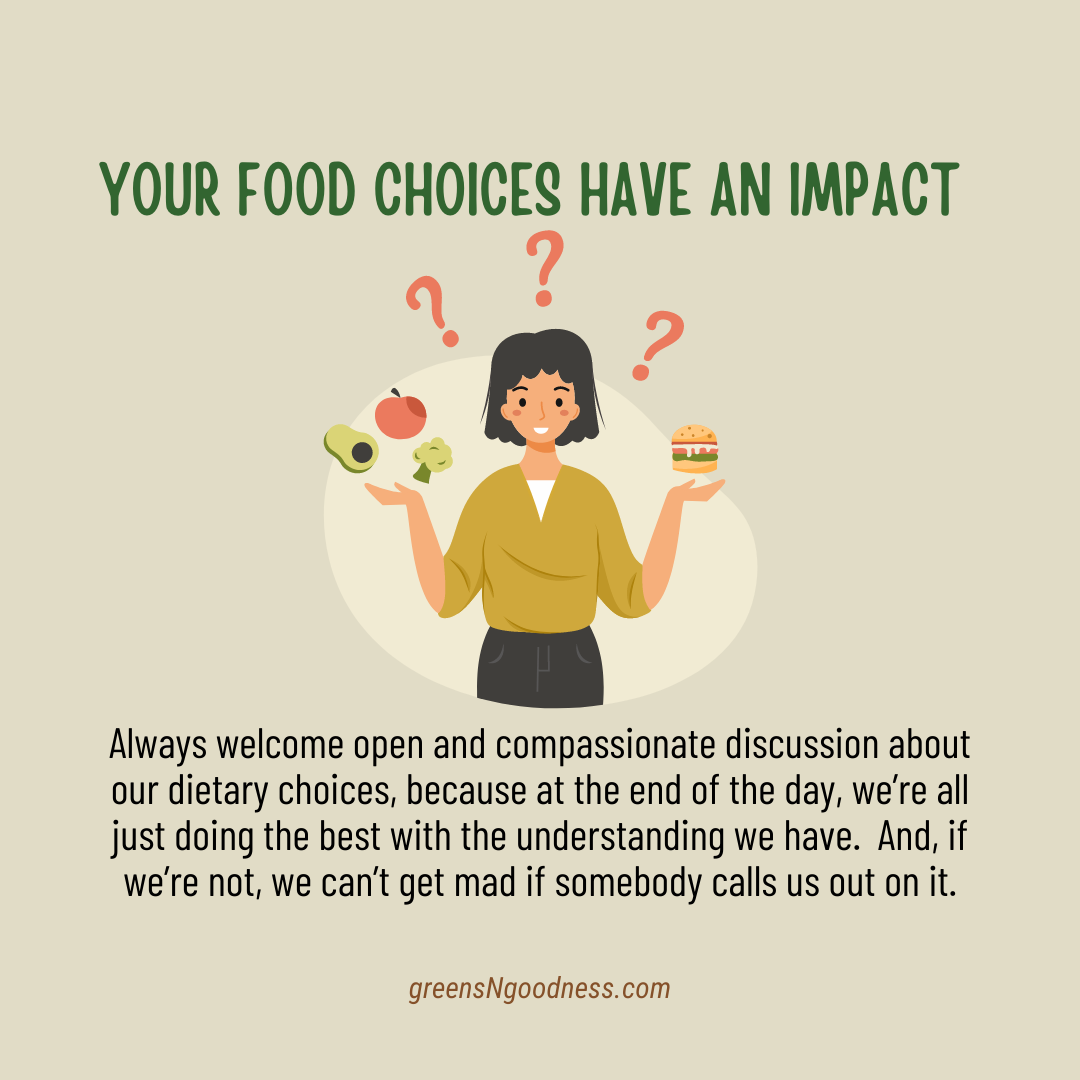
YOUR FOOD CHOICES HAVE AN IMPACT
If you find yourself advocating for a meat-centered diet because you found success losing weight by adding animals back to your diet, after years of overeating on a vegan diet, maybe pause and ask yourself how you can reframe that experience and find balance with your health without promoting needless suffering.
And, if you can’t do any of that, maybe just be quiet. Your silence will probably be more helpful than using your voice to promote the need for even more animal exploitation. If you have let go of your concerns for animal welfare, and find solidarity in the meat-centric world that will most certainly welcome you with open arms, I understand. Life is a complex web of emotions and experiences, and we won’t all perceive things the same way.
Always welcome open and compassionate discussion, because at the end of the day, we’re all just doing the best with the understanding we have. And, if we’re not, we can’t get mad if somebody calls us out on it.
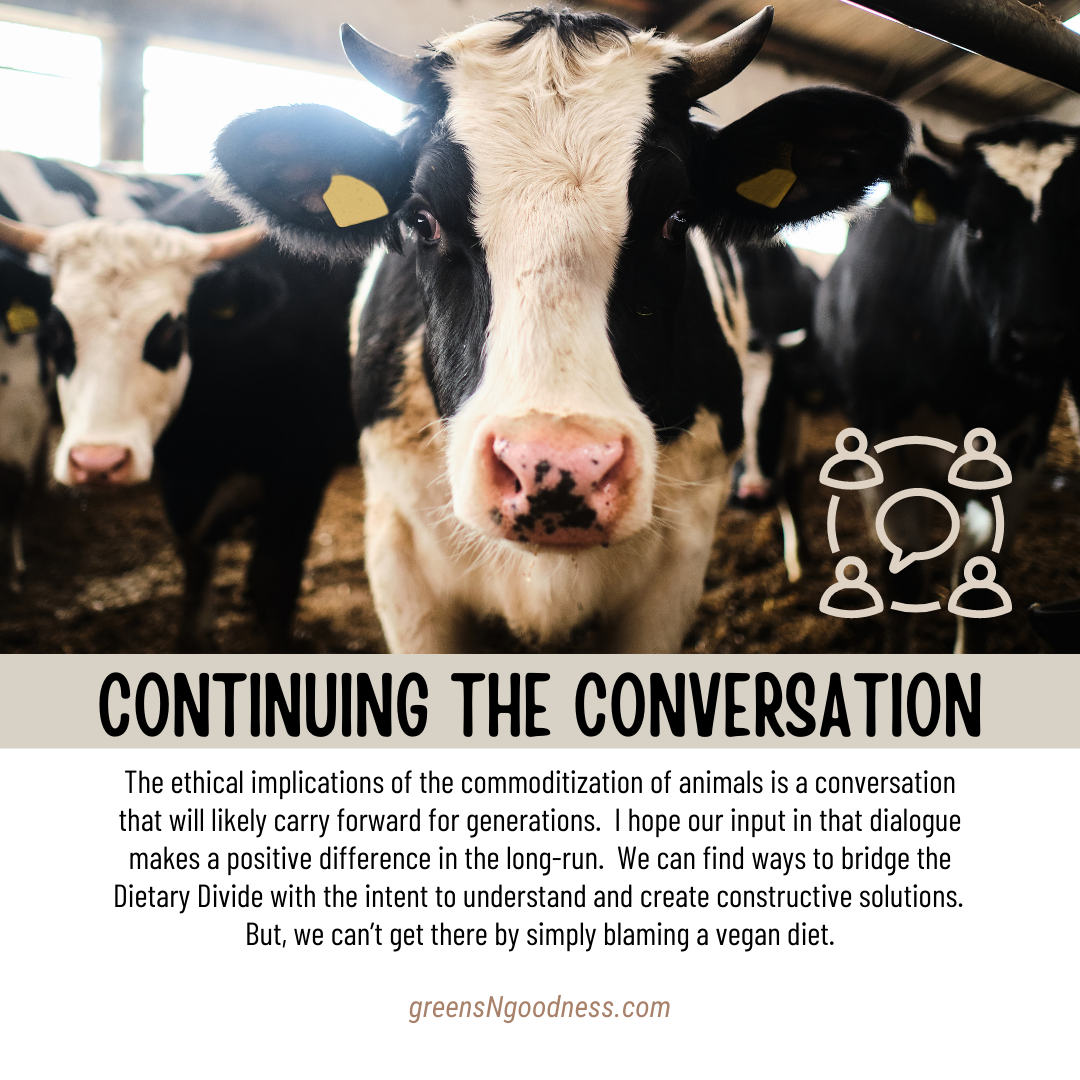
CONTINUING THE CONVERSATION
I’m not here to tell you what to do, but I do think the most positive path forward is one of understanding and support. If you find yourself conflicted by the desire to be vegan and the social and emotional challenges it presents, ask for help. Don’t abandon your ideals before sharing your concerns with others that can provide support and perspective.
The ethical implications of the commoditization of animals is a conversation that will likely carry forward for generations, and I hope our input in that dialogue makes a positive difference in the long-run. We can find ways to bridge the Dietary Divide with the intent to understand and create constructive solutions. But, we can’t get there by simply blaming a vegan diet.

